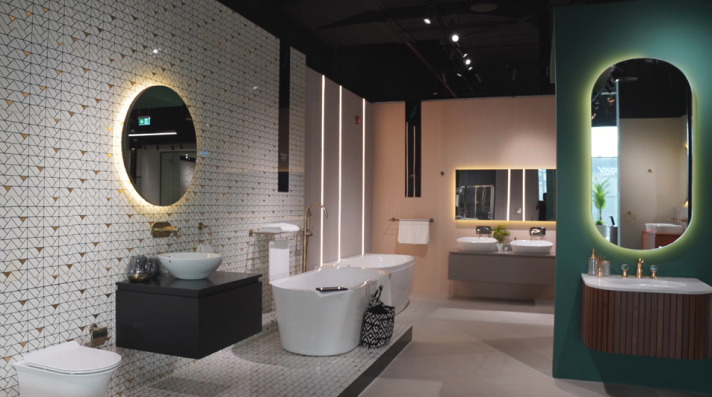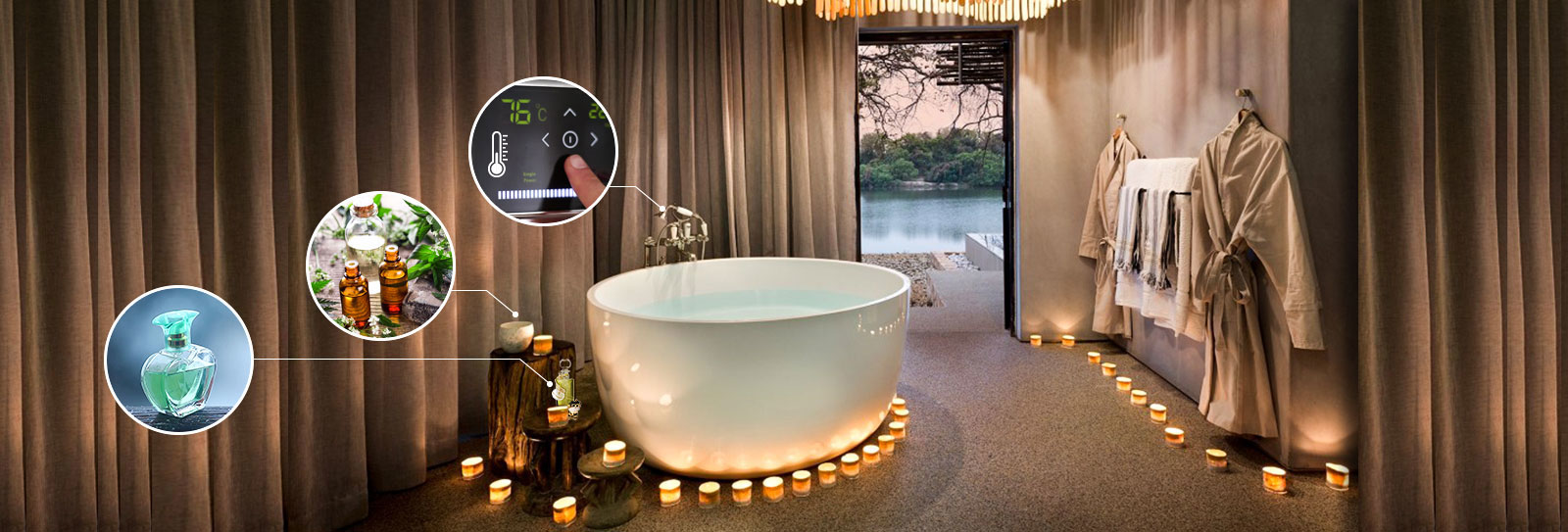The festival of lights is celebrated with much fanfare in India. We grew up learning that Diwali heralds a new start, with the truth vanquishing the evil. In other words, celebrations are in order. Diwali celebrations officially begin with new clothes, sumptuous food, purchasing of firecrackers for the aural and visual treat at night, and informal get-togethers with friends and family. The real excitement, however, is on Diwali day, when traditions and preparations come together to ring in the festivities. It isn’t officially Diwali when you haven’t woken up at 5 AM with the scent of fragrance sticks looming in the air, the reticent ring of bells, and warm essential oils imploring you to take the official celebratory oil bath.
Holy bath on Diwali takes place before dawn, using essential oils and natural cleansers instead of synthetic soaps. Contrary to a regular bath, this holy bath is special and requires prior arrangements. Here are 5 ways you can prepare to have the ultimate bathing experience before dawn on Diwali:
Get your essential oils ready:
Sandalwood, camphor, rose petals, jasmine, orange peels and milk are typical elements used for the holy bath in a bid to cleanse the person off any evil spirits and add a more royal touch to it. Moreover, after the bath, these elements linger in your body long after you’ve used them. The fragrance emanating from the combination of sandalwood rose and milk can make you feel refreshed and prepare you for the rest of the day. For your holy bath on Diwali, prepare the essential oils the previous night and keep it covered and ready to use in your bathroom. Freshly made oil smells stronger and invigorating enough to rejuvenate you and make your bathroom a personal healing station even if it’s in the wee hours of the morning. Store your oil in special vials or glass bowls and warm it a bit before applying it on your body and hair. A gentle massage later, go for your bath.
Concoct natural scrubs to remove the oil:
Once you have applied the oil and let it seep into your body, the next step is to scrub it out. Use natural scrubs that are good for all skin types and one that removes dead cells from your body. Natural scrubs such as tomato puree and sugar can help make your skin glow and remove the excess oil. Use natural loofahs such as ridge gourd organic fibre or coconut fibre to effectively remove the dirt quickly. For natural scrubs, make them the previous night and store it in the fridge to keep its freshness intact. DIY natural scrubs have a short life span but are way more effective than shop-bought ones. Ingredients such as ground coffee granules, Epsom salt and sugar help remove dead cells, are easier to make, and leave your skin feeling smooth.
Set the water to a desirable temperature:
The holy bath requires a hot water system to make your early morning bathing experience a pleasant one. Early morning baths can be a gruelling experience, especially when you aren’t a morning person and when hot water isn’t at your disposal. But with the right water heater equipped with a thermostatic mixer that caters to your desired water temperature, your bath can be a beautiful experience. A good hot bath helps in releasing stress, opening your pores and leaving a calming effect on your body. Thermostatic mixers are armed with technology that speeds up shower time instead of you rummaging for the right temperature. And if you are hoping to make your bathing experience an aesthetically pleasing one, decorate your bathtub with hot water and rose petals and simply step into it with the intention of relaxing for a few minutes first before you get engulfed in the chaos of the festival. If you have a shower enclosure, make use of it to take in the steam post your oil application and enjoy the hot water generated. A great shower awakens you and prepares you for the rest of the day!
Choosing the right early morning attire:
It’s natural for your clothes to grease especially after an oil massage. While you might be tempted to wear your new Diwali clothes in the morning, it’s best to reserve it for the latter half of the day. For the morning rituals post your holy bath on Diwali, wear something light and airy, like cotton, so you wouldn’t feel too bad if it gets greased. Mornings can be chilly so ensure you have an old flannel to keep you warm. Ideally, pat yourself dry with a towel and put on a bathrobe until you are absolutely sure that you are dry from the bath. Wear your fresh but old cotton outfit and once you feel the oil has absolutely left your body, you can put on your new clothes. Avoid silk material as the stains can be difficult to remove and it makes you feel less fresh compared to cotton or linen.
Natural perfumes for the festival:
Natural fragrances smell a lot better than factory-made perfumes. Sprinkle yourself with some rose water after a bath. Pure vanilla fragrances are a popular favourite, often found in a solid form or in tiny vials. Dab a bit behind your ears and your pulses to let it last for hours. Natural perfumes are typically made with essential oils like jojoba or coconut oil and last longer than shop-bought ones. Sandalwood and rose water, too, make for a nice scent, keeping up with the tradition and festivities.
Visually beautiful, Diwali is a festival that brings people closer and has everybody participate all in the name of festival spirit. With perfect lighting solutions, accessories and fixtures that transform your bathroom into a wellness zone, your bathing experience can become something you look forward to on the big day. For products high in quality that never fails to impress, head out to Jaquar and gift yourself the ultimate Diwali gift!


